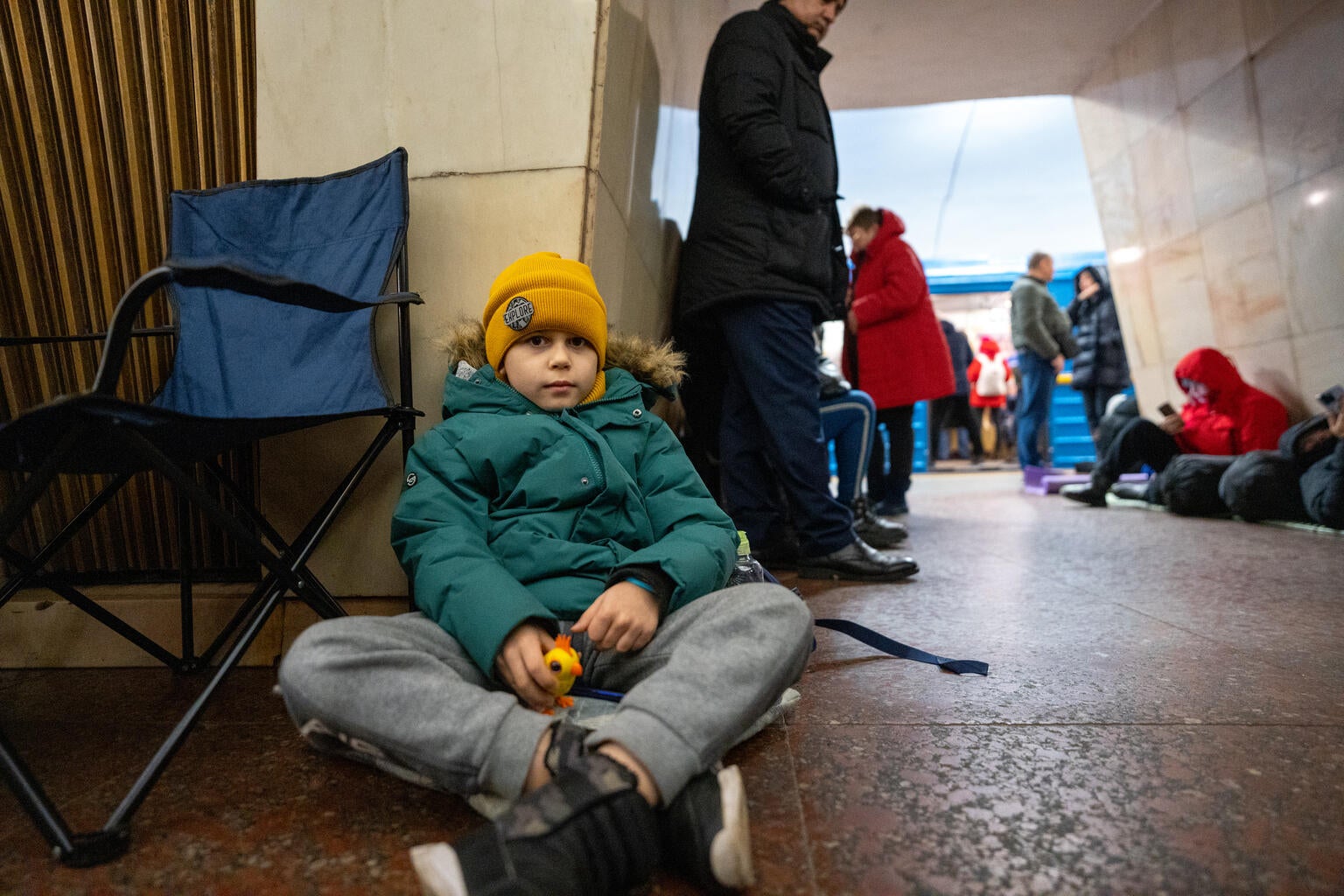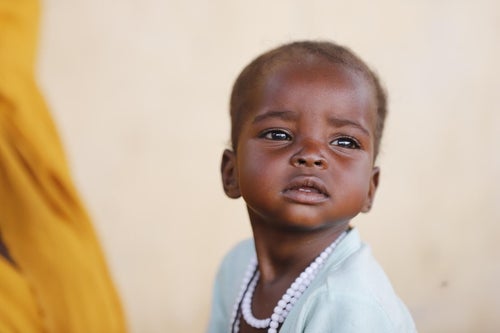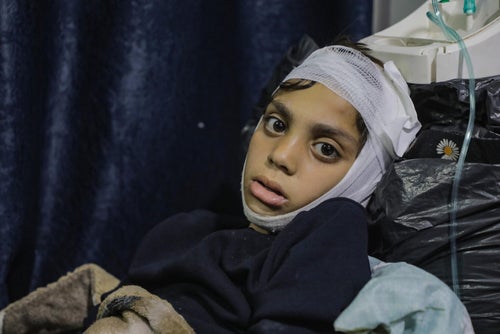This is a milestone we never wanted to reach. Ukrainian children and their families have now endured two years of violence, trauma, and displacement. Sadly, since 24 February 2022, at least 1,860 children have been killed or injured – a reported number which is likely much higher.
At the end of 2023, more than 3.7 million people remained internally displaced after their homes, communities, and livelihoods were reduced to rubble. Yet, despite experiencing unimaginable trauma and loss, children continue to display extraordinary strength and courage.
Over the past two years, the generosity of people like you has given children and their families hope for a brighter future.
Despite everything he has lost, Bodhan keeps a smile on his face
Like many children in Ukraine, 11-year-old Bohdan has experienced things no child should ever have to – violence, the destruction of his home and a heartbreaking separation from his family.
Bohdan now lives with his grandmother and two sisters in a house damaged during the fighting. He hasn’t attended school since it was destroyed in shelling last year, and most of his friends have fled the city. He has lost so much, but he still manages to see the bright side of not having his own bedroom.
"Sleeping in the kitchen is warmer because of the stove,” he says. “Plus, you won't go hungry."
Unlike most children his age, Bohdan does not dream about birthday parties or what he’ll be when he’s older. Instead, he dreams about being safe and warm, and being able to go to school and play with his friends again.
"My school is in ruins. I wish I could return there to see my friends and stroll around. Online studying is tough due to potential electricity and internet outages. Using my phone for studies is challenging as the battery runs out, and I can't hear the teacher well. Besides, my eyes get tired and worsen."
Across Ukraine, 40 per cent of children are facing disruptions to their learning, with half of school-age children unable to access education in frontline areas. This is having a devastating effect on children’s learning and development, with the average child falling two years behind in their reading skills and one year in maths.
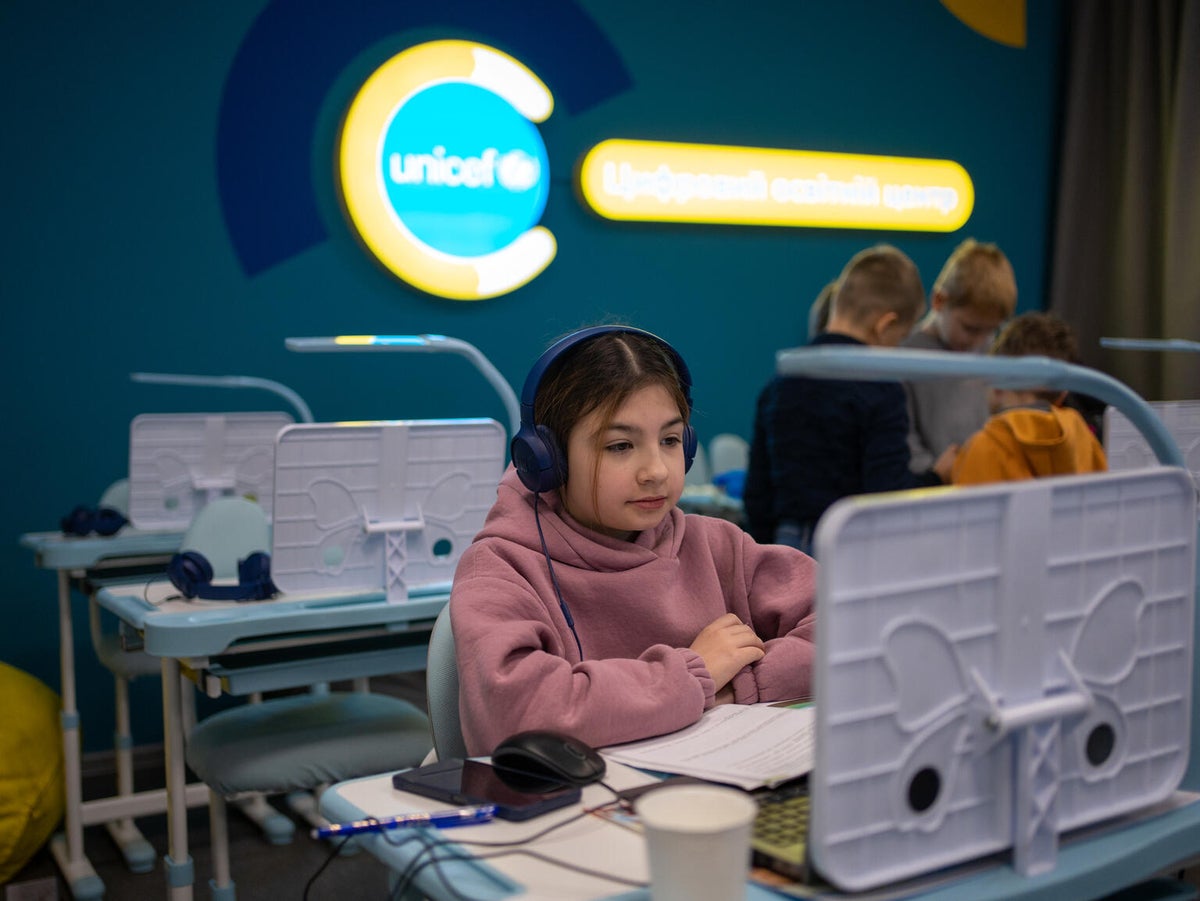
Early childhood intervention helped Andrii find his voice
The first years of life are crucial to a child’s development, but at just three years old, Andrii has experienced more hardship than many children will experience in a lifetime. Between being forced to move house four times during the war, to a bad case of COVID-19 that left him hospitalised, little Andrii became so overwhelmed that he would hide his face and cry if he met a stranger.
"We were stuck in hospitals, with constant injections, tests, travelling. He had a bad experience with his peers. All of this overloaded him mentally. Andrii began to regress developmentally – he closed himself off from strangers, both from children and adults, and did not make contact with anyone at all, did not perceive the world around him."
While his mother, Nataliia, initially found it difficult to get Andrii diagnosed during the chaos of war, she was eventually recommended to a free early childhood intervention service that determined he was experiencing post-traumatic stress disorder (PTSD).
The service, supported by UNICEF, helps provide care for children aged up to four years old who have or are at risk of developmental delays and disabilities. Depending on the child’s needs, they can get access to a range of specialists including doctors, physical therapists, psychologists, speech therapists, and social workers.
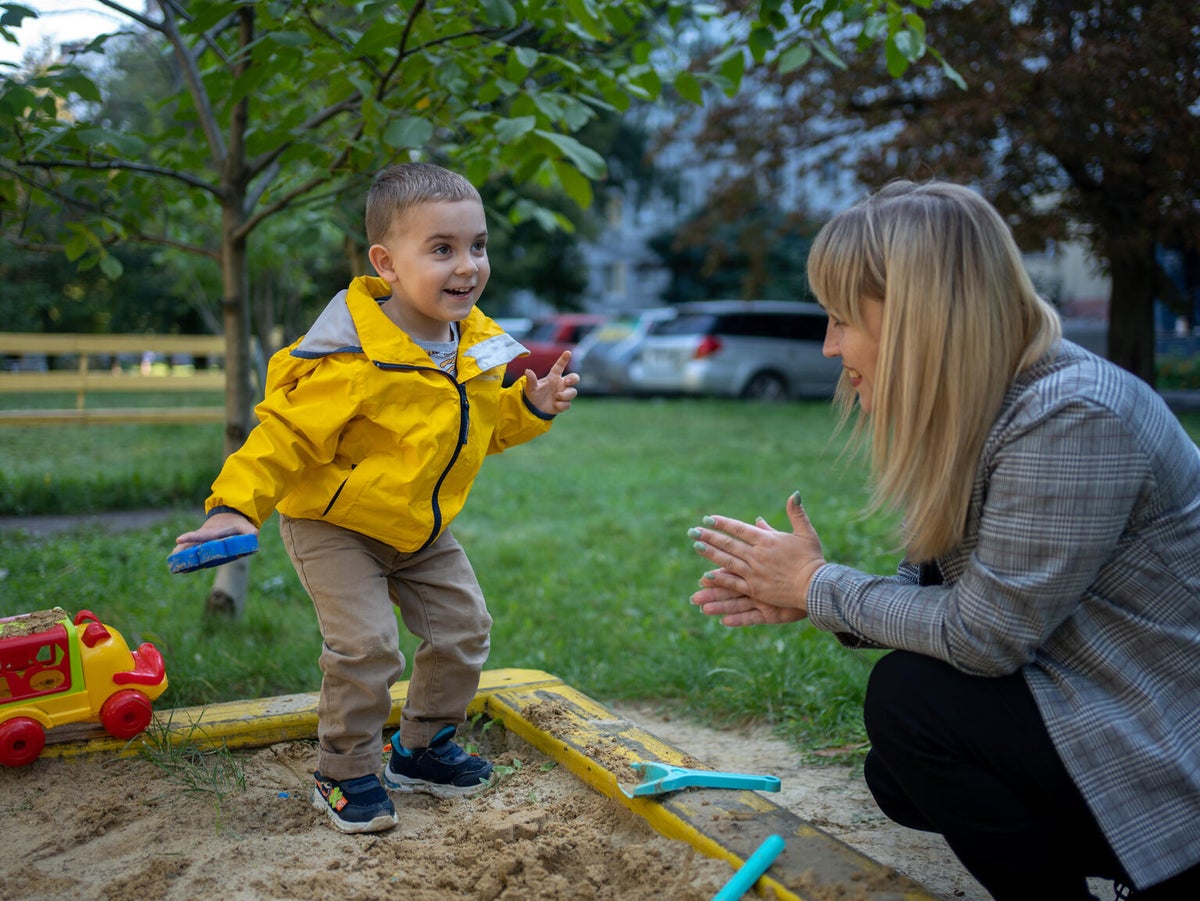
After a few sessions with speech therapist Alinta, Andrii started to open up again. But he is just one of many children and young people whose mental health has been severely impacted by the war in Ukraine.
Across the country, parents are reporting that their children are suffering from heightened levels of anxiety, fear, phobias, and sadness, as well as reduced engagement in school, sensitivity to loud noises, and sleep troubles. These are typical signs of post-traumatic stress disorder that if left untreated, can develop into more severe lifelong issues.
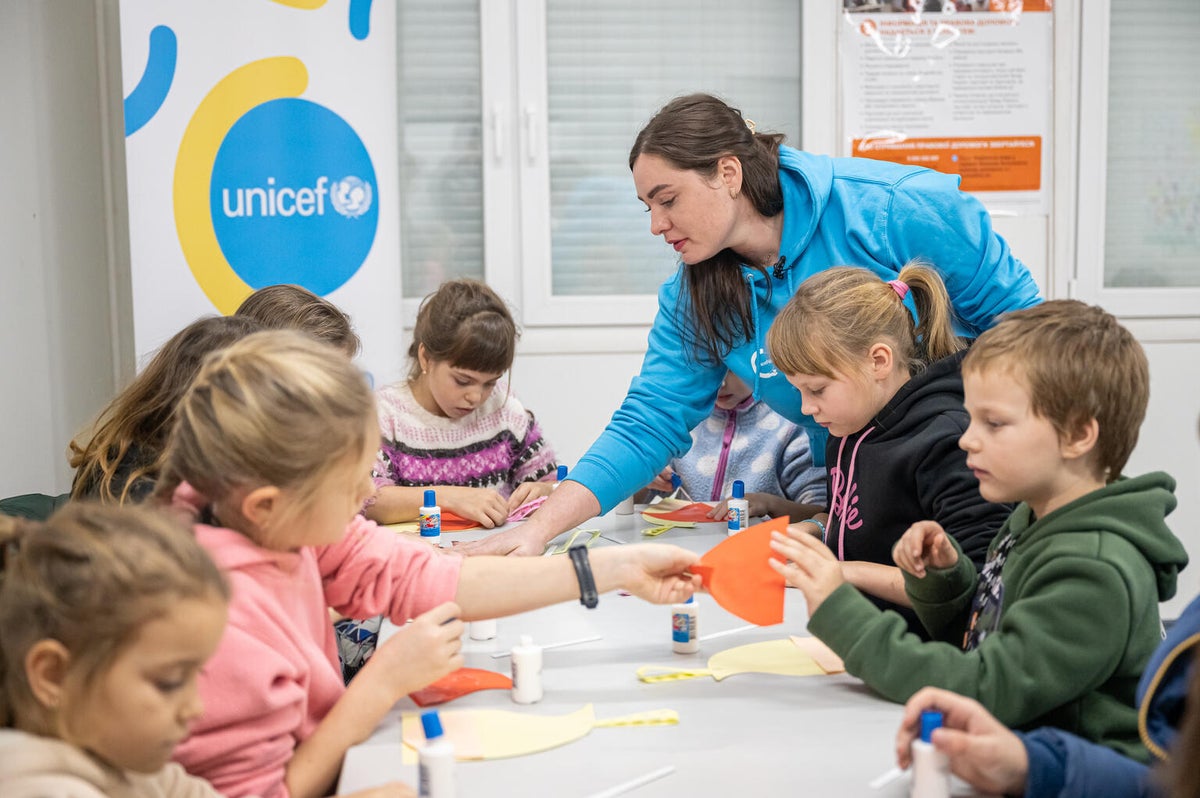
At a time when children need their families more than ever, many parents say they are struggling to support their children. UNICEF and its partners remain on the ground in Ukraine to provide mental health support to children and families in need.
While they miss their home in Ukraine, Eva and Misha are learning to cope through play
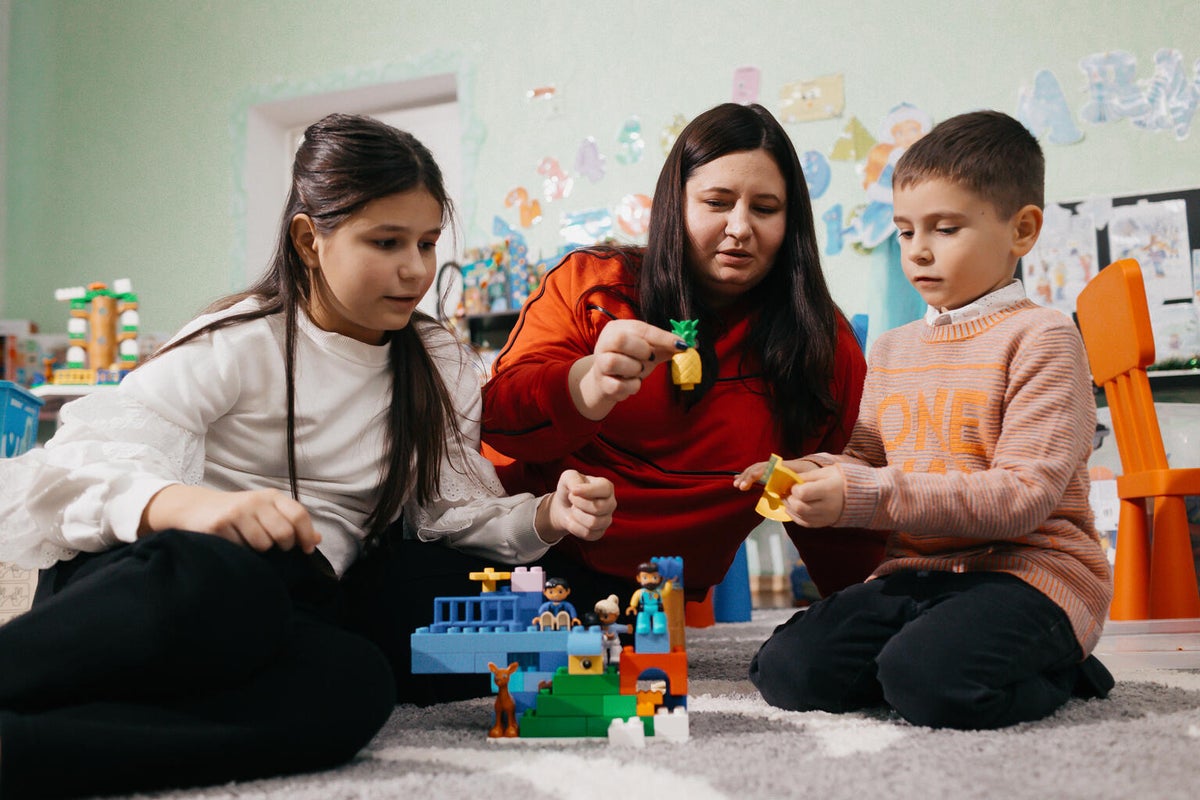
Like millions of Ukrainian children, the lives of 10-year-old Eva and her younger brother Misha changed forever on 24 February 2022, when the escalation in fighting forced their family to flee across the border to Moldova.
Having to start all over again in a new country is never easy, and while Eva and Misha like their new school and friends, they miss their old life in Ukraine. Over the past two years, Eva and Misha have never lost hope that one day they will get the chance to hug their grandparents again, stroll along the seaside, and return to their home.
After school, Eva joins her brother at his kindergarten, where UNICEF and its partners have established a play and learning hub.
"Here, we have an oasis where children can be children. These activities help them to feel better. If a child is sad, we identify the cause and help them overcome it. They engage with other children during the building process and forget their problems."
Many Ukrainian children and families who have sought refuge in neighbouring countries including Moldova, Czech Republic, Poland, Romania and Slovakia are struggling to access education, healthcare, and protection services. Around half of Ukrainian refugee children are not currently enrolled in national education systems in their host countries, and, as the war continues, many are facing the prospect of long-term displacement.
Over the past two years, UNICEF and our partners have been working tirelessly to deliver for displaced children and their families through the provision of mental health and psychosocial support, health services, learning and development opportunities, and child protection services.
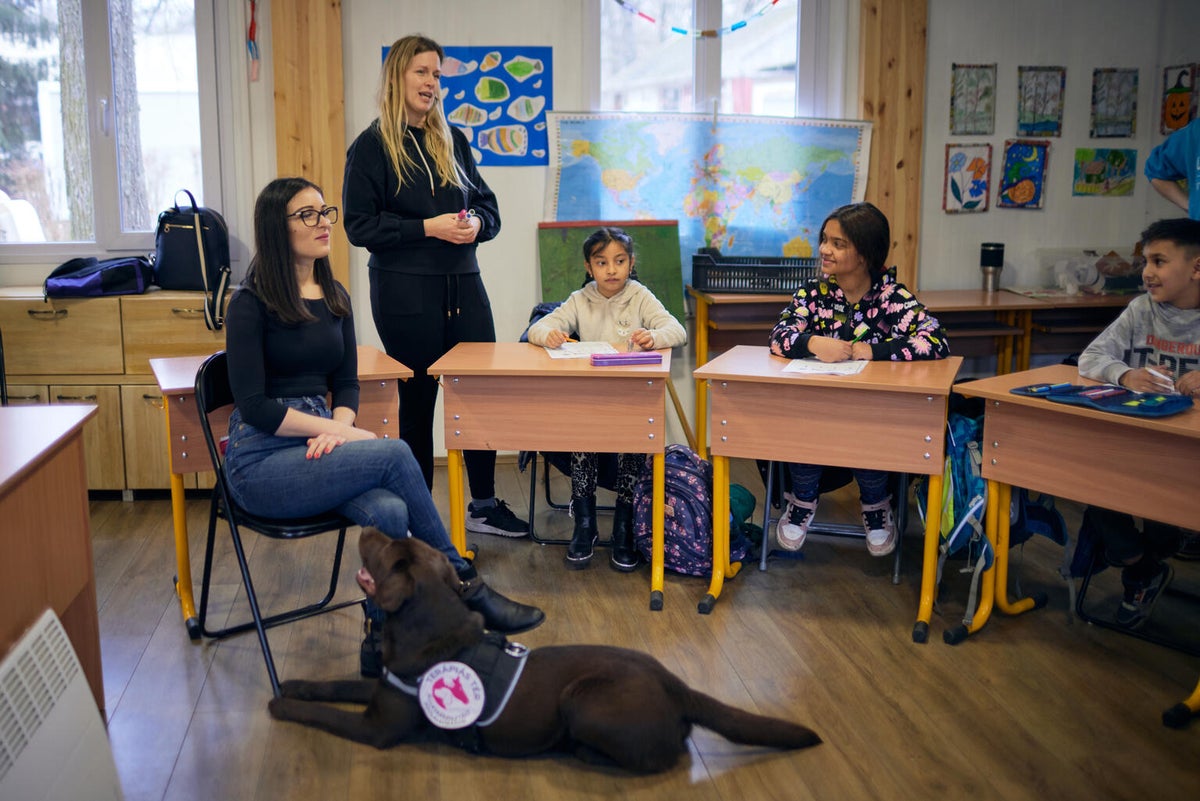
How UNICEF is helping children and families in Ukraine and beyond
Thanks to the incredible support of our donors, UNICEF has strengthened our ongoing presence in Ukraine and continues to work alongside our partners to provide humanitarian assistance to children and families in need.
In 2023 in Ukraine, UNICEF and our partners provided:
- more than 5 million women and children with support in accessing primary health care,
- nearly 5.5 million people with safe drinking water,
- 2.5 million people with mental health and psychosocial support,
- and more than 1.3 million children with access to education.,
UNICEF is also supporting Ukrainian refugees in neighbouring countries, by providing access to education, mental health and psychosocial support, primary health care, cash transfers and more.
Together, we have achieved so much over the past two years, but now is not the time to look away. Ukraine’s children need us more than ever.
Two years on, and children and their families continue to suffer under relentless attacks. The destruction of thousands of schools, hospitals, homes, and water and energy infrastructure is putting children’s lives and wellbeing at risk. No child should ever have to experience the horrors of war – every child deserves to be safe.
Children of Ukraine Crisis
After three years of war, children need you more than ever. Donate to UNICEF's ongoing efforts in Ukraine.
Related articles
Stay up-to-date on UNICEF's work in Australia and around the world



